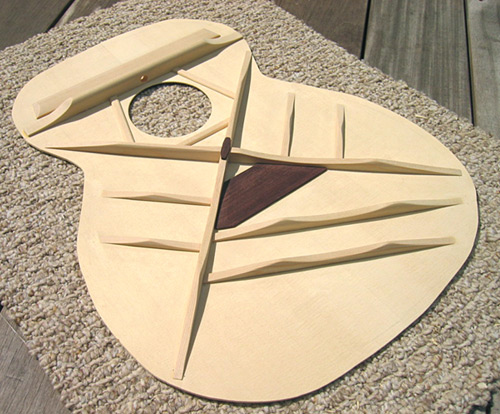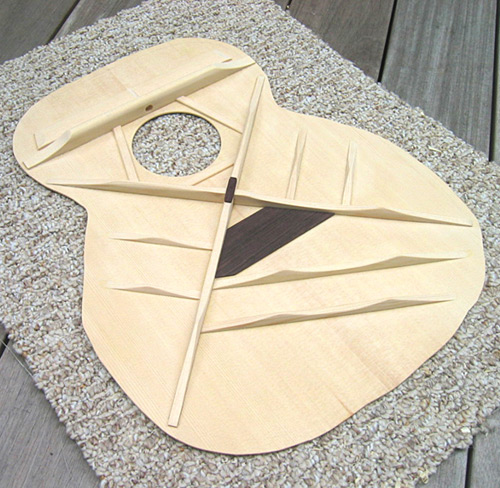Hello all --
I've been carving away at the bracing in my two OMs, and I thought before I went any further I'd post a couple of images and links to short audio files of the corresponding tap tones. I'd really appreciate some feedback on what you're seeing and hearing, as I still feel that I'm flying blind.

Engelmann

Sitka
Audio files are here: http://www.soundclick.com/bands/pagemusic.cfm?bandID=743213
I did spectrum analyses on them both, sort of before, during, and after carving, and was able to track the descent of the dominant overtones (are these modes?) of each. The sitka top(second grade), currently has an emphasis at 250 hz, or B3. The engelmann is a little lower, at 247 hz, but still at B3.
Am I in the ballpark, or have I taken away too much? The engelmann was definitely floppier than the sitka, so I left a little more brace material.
Anyway, thanks in advance for your insights.
Ken



